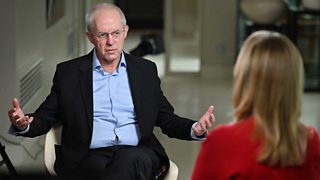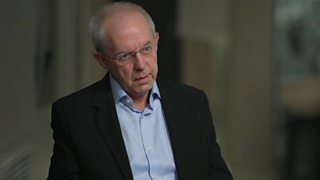The atheist physician who built the pope’s hospital

Antoine Mekary | ALETEIA
When Pope Francis was discharged after 38 days at Rome’s Gemelli Hospital, some may have wondered if the name Gemelli — Italian for “twins” — was a nod to Sts. Cosmas and Damian, the twin physician-martyrs of early Christianity. But the hospital is named for just one man: Agostino Gemelli, a former atheist and military doctor whose dramatic conversion and lifelong pursuit of truth left an enduring mark on Catholic education, science, and health care.
Born Edoardo Gemelli in Milan in 1878, he was raised in a staunchly secular environment. His father was a Freemason, and his family rejected religion entirely. Edoardo pursued medicine at the University of Pavia, where he encountered Ludovico Necchi, a devout Catholic who influenced him not through preaching but through deep philosophical conversation and scientific dialogue. Slowly, Edoardo’s convictions began to shift.
His turning point came during World War I, while serving as a military doctor. In a hospital in Milan, a dying soldier, disfigured by leprosy, looked at him and said, “If my mother were here, she’d kiss me … could you?” Moved to the core, Edoardo kissed the man on the cheek. The gesture, simple yet profound, led to a spiritual awakening.
On Holy Thursday in 1903, Edoardo received Holy Communion for the first time and decided to become a Franciscan. Despite fierce opposition from his family — including an attempted kidnapping to prevent his entrance into religious life — he joined the order and took the name Agostino. He was ordained in 1908.
Rather than leaving science behind, Fr. Gemelli became a pioneer of experimental psychology in Italy. He founded the Rivista di Filosofia Neo-Scolastica and championed the harmony of faith and reason. In 1921, with Pope Benedict XV’s support, he established the Catholic University of the Sacred Heart in Rome, aimed at forming lay Catholic intellectuals. In 1964, its medical faculty opened the doors of what would become one of Italy’s most renowned hospitals: the Agostino Gemelli University Polyclinic.
The Gemelli Hospital gained international recognition after the 1981 assassination attempt on Pope John Paul II. Rushed there with four gunshot wounds, the Polish pope would return many times during his pontificate — over 150 days in total. He affectionately nicknamed it “Vatican III,” a nod to his other residences at the Vatican and Castel Gandolfo.
Today, a 200-square-meter suite on the 10th floor remains permanently reserved for pontifical use. Gemelli Hospital is not only the largest in Rome but also one of Italy’s top-ranked medical centers, known for its excellence in research and education.
Agostino Gemelli’s journey from skeptic to saintly scholar is a testament to the power of compassion and intellect working together. His legacy continues in every student trained, every patient healed, and in the quiet dignity with which the Church continues to serve the sick.

